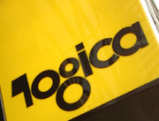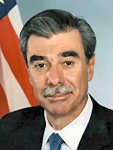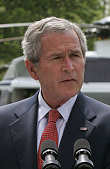 A press release from the Bureau of Industry and Security (“BIS”) this afternoon announced that Cooper Tools Industrial Ltda., a wholly-owned Brazilian subsidiary of Houston-based Cooper Industries, agreed to pay $27,000 to settle anti-boycott violations that had been voluntarily disclosed to BIS. Between June and July of 2004 the Brazilian subsidiary responded to requests for prohibited information about its business relationships with Israel to buyers located in Kuwait and the UAE.
A press release from the Bureau of Industry and Security (“BIS”) this afternoon announced that Cooper Tools Industrial Ltda., a wholly-owned Brazilian subsidiary of Houston-based Cooper Industries, agreed to pay $27,000 to settle anti-boycott violations that had been voluntarily disclosed to BIS. Between June and July of 2004 the Brazilian subsidiary responded to requests for prohibited information about its business relationships with Israel to buyers located in Kuwait and the UAE.
Once again we have an example of a company winding up in the soup because of non-compliance by one of its foreign subsidiaries. It is easy to forget the broad scope of the anti-boycott regulations in Part 760 of the EAR. Section 760.2(d) prohibits “U.S. Persons” from providing information about its relationship with a boycotted country. A “U.S. Person” is defined in Section 760.1(b)(1)(v) as including foreign subsidiaries that are “controlled in fact” by a U.S. company. Section 760.1(c)(2) makes clear that, not surprisingly, a wholly-owned subsidiary will be presumed to be “controlled in fact.”
Violations by foreign subsidiaries can easily occur without anyone really understanding that a violation has occurred. Cooper’s Brazilian subsidiary no doubt understood itself as subject to Brazilian law and not to U.S. law. So it behooves companies, in my view, to spend the extra bucks to send their foreign employees to export compliance training. And, of course, plenty of lawyers are more than happy to fly down to Rio to do the training there.

 Posted by
Posted by  Category:
Category: 

 LogicaCMG, Inc., the U.S. subsidiary of U.K.-based
LogicaCMG, Inc., the U.S. subsidiary of U.K.-based  The Bureau of Industry and Security (“BIS”) recently released a
The Bureau of Industry and Security (“BIS”) recently released a  The White House’s early Christmas gift to BIS — the Export Enforcement Act of 2007 — was
The White House’s early Christmas gift to BIS — the Export Enforcement Act of 2007 — was  The White House today
The White House today 

